For those of us that can’t even remember to water the herbs in our kitchens (ahem, not that that’s me or anything), the thought of growing an apple orchard in our backyard seems downright laughable.
Right, me with the black thumb over here. Those poor, poor plants.
After chatting with my buddies over at Winter Cove Farm though, I’ve gotta say, they’re making it look awfully doable, even for someone who manages to make a succulent wilt.
The reality is, apple trees are a lot tougher than they look, even with all of those delicate flowers all over them, and growing your own backyard trees may be easier than you think.
A Bit About Our Guest
Winter Cove Farm is a lovely little family-run orchard in Maine specializing in sustainably grown fruit trees. Brian and Jill run this operation entirely themselves, where they use eco-friendly and sustainable methods like permaculture to raise healthy, happy trees, and sell them to their customers.
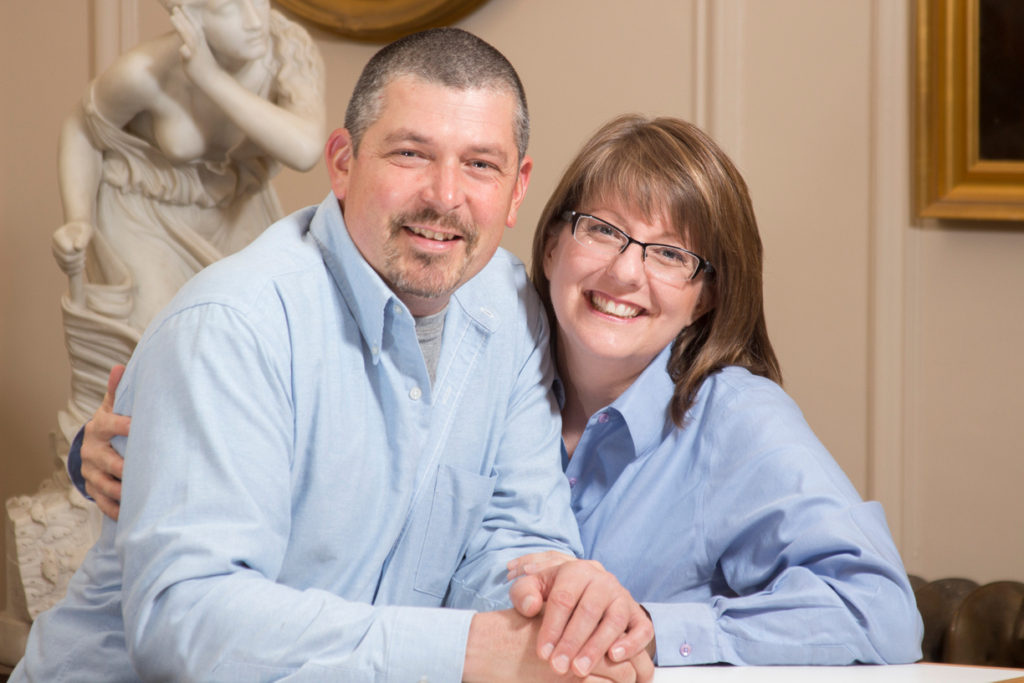
From plums to pristine apples, the Mellos put their focus first on growing without pesticides and artificial fertilizers, growing fruit trees the way Mother Nature intended it.
Modeling their own systems after food forests and sticking to their Simple, Natural, and Poison-Free methods, this little New England orchard has completely won me over with their no compromises approach to sustainable agriculture and their eagerness to help their customers become the best darn backyard orcharders they can be.
If you’re not too keen on Miracle Gro but get mega-intimidated reading through organic gardening guides, this interview’s where you need to start learning about growing fruit trees.
I sat down to talk to with Brian Mello, co-owner of Winter Cove Farm in Winterport, Maine, and learned a LOT about just what it takes to grow apple trees, and I learned SO much. Get comfy guys, this one’s gonna be good.
How hard is it to get a backyard apple orchard going? Can even a novice gardener do it, or does it require a fair amount of maintenance and know-how?
It’s super easy to grow apples! For a novice, we recommend picking super pest and disease-resistant varieties like Liberty, Enterprise, Freedom, Antonovka and William’s Pride. We recommend a rootstock like M111, which is a medium-sized tree that doesn’t require staking, but will produce within a 5-7 year period.
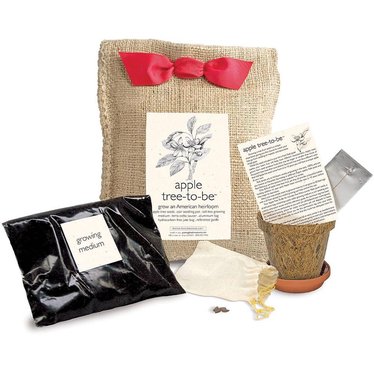
I think a lot of people are daunted by growing their own apple trees because of their climate — too hot, too cold, too dry. Are there certain varieties that do better in warm and cold climates than others?
There are varieties that have been bred for northern climates, and ones that have been bred for southern climates. There are even apples that have been bred to grow now in tropical climates, extending apple growing to almost every location on earth!
Are there certain climates where most apple tree varieties simply won’t thrive?
Tropical climates have the smallest variety of apple trees. However, apples are grown to a zone 2 and up to a zone 10. Apples that love the cold will not grow in the tropics, but everyone has an option for growing today. There are nurseries that specialize in different growing zones that can offer you the perfect trees for where you live.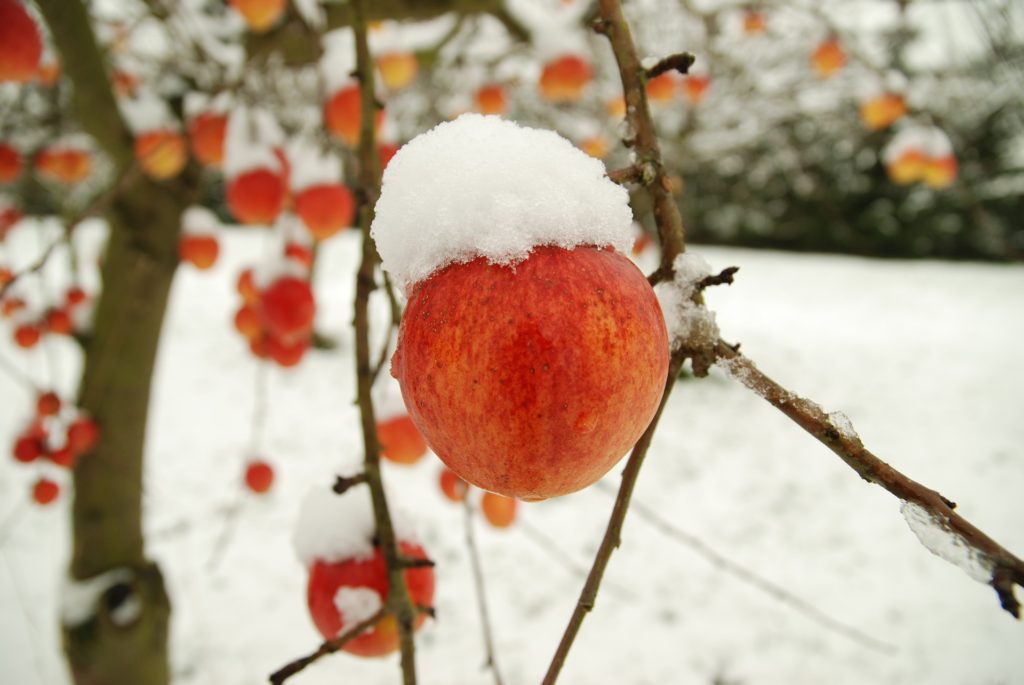
Wow, that’s amazing! So really, it doesn’t matter where you live, you can pretty much grow apples anywhere!
What about space though? How much space do you need to grow apple trees? Is there a per tree minimum?
That is a very hard to answer question. Apple tree plantings can vary from 18 inches all the way up to 20 feet. The rootstock of the tree determines its size and hardiness, which in turn affects how close together they can be grown. In a backyard polyculture, we recommend five or more feet apart.
Orchard Vocab Time: A polyculture is any type of planting with a variety of plants, instead of just one type (kind of like the Three Sisters gardens).
What about soil? Are apple trees picky about the composition? What’s ideal?
Apple trees can be picky about their soil, but are very adaptive to the soils around the globe.
The biggest requirements are decent humus and a reliable water source. The rootstock, again, determines the soil conditions that are required. Some rootstock does better in sandy soils, some in clay. In all soils, we find a good undyed wood mulch can help create good conditions even in poor soils. Just make sure that the circle of mulch is at least 3 feet across to help cover the area well and create good fungal conditions in the soil.
Orchard Vocab Time: Humus is the good, textured stuff in soil that’s left over from the breakdown of compost and other organic materials. Good quality humus helps with water retention, keeping plants hydrated longer, with less need for outside watering.
What do you like to use for a natural, sustainable fertilizer?
We use rabbit pellet compost and chipped wood for mulch as the majority of our fertilizer. Our nursery beds are prepped the year before by raising poultry in deep wood chips. This helps eliminate weeds, fertilizes the soil, and creates a healthy fungal biomass to plant our baby trees into.
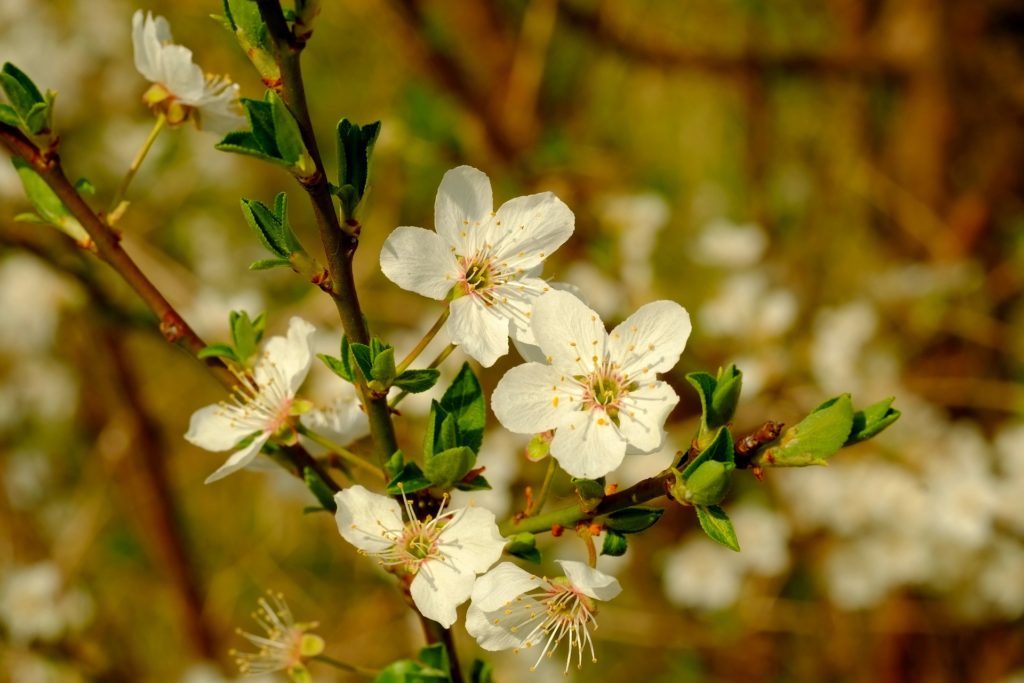 How much water do these guys need? Are they going to shrivel up without an irrigation or sprinkler system in place?
How much water do these guys need? Are they going to shrivel up without an irrigation or sprinkler system in place?
No. We give them half a 5-gallon bucket once a week per tree. It’s actually better to do a large watering and hit all the roots.
What will happen is the trees will send roots down deep and find water — drip irrigation actually prevents this. We only recommend watering the first year or two if you’re in a drought. On baby trees in dry conditions, just use more mulch at the base of the trees to help them hold onto the moisture.
Wow! So these guys can even survive a forgetful waterer — amazing! What about really cold temperatures? Are there frost-resistant apple trees?
There are definitely excellent trees that handle cold and early fall/late spring frosts. Honeycrisp, Wolf River, Sweet 16, Wealthy, and Northern Spy are fantastic varieties for areas with unpredictable frosts. There are hundreds of other varieties, and a later blooming apple tree is good for areas that experience unpredictable frosts in the spring and fall.
That makes sense, since I hear the blooming period can be kind of a sensitive time for fruit trees.
Editor’s Note: Catch the second part of this interview here.

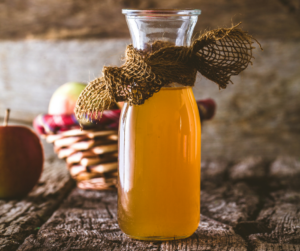
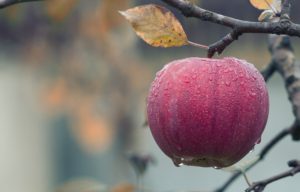
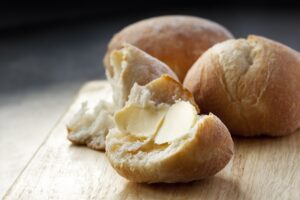
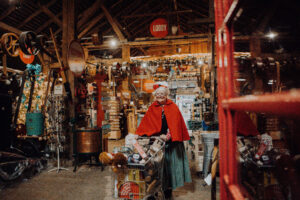
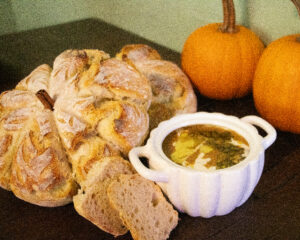
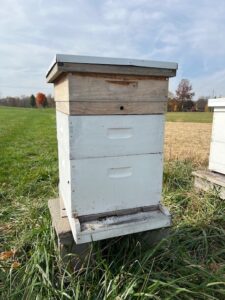
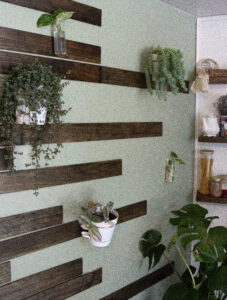
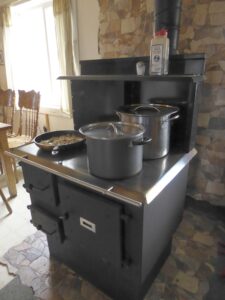





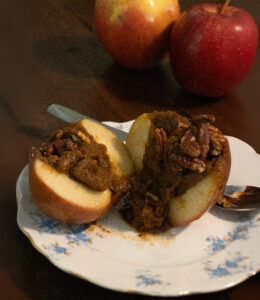
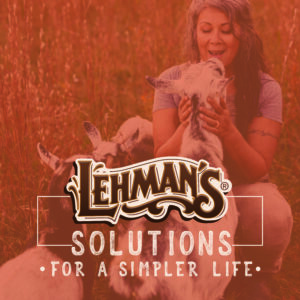
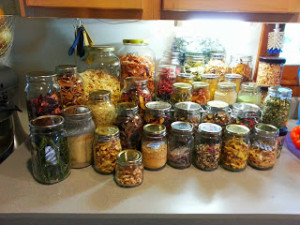
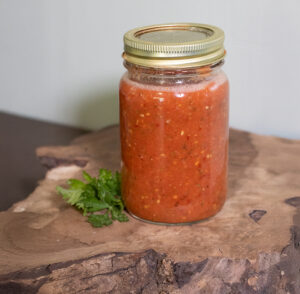
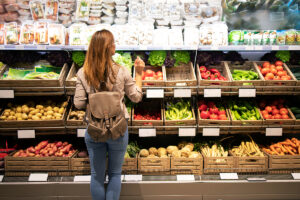






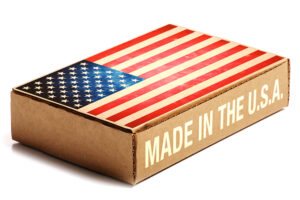

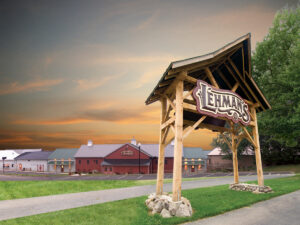
I tried “sustainable, no pesticide” apples from a “natural grower”. The grower shipped my new trees, complete with grubs. I didn’t realize it until too late….I had borers. Using a supplier/grower that ships without inspection and certivied insect free is a gamble. How do you guarantee no borers will be in your product if you don’t treat for them?